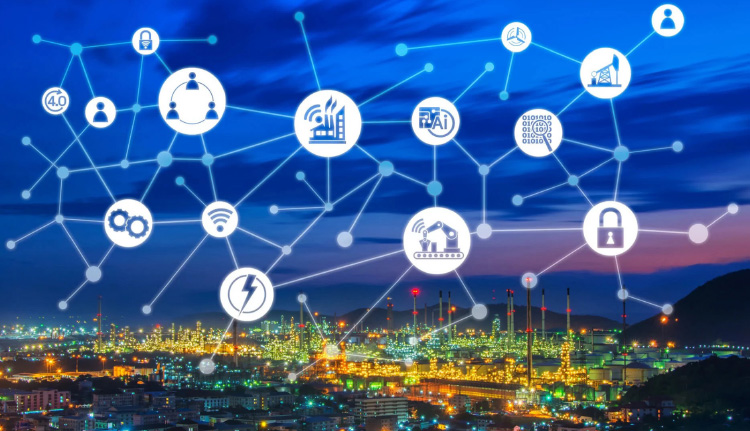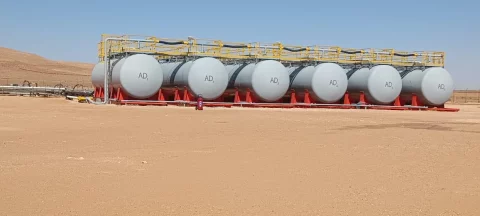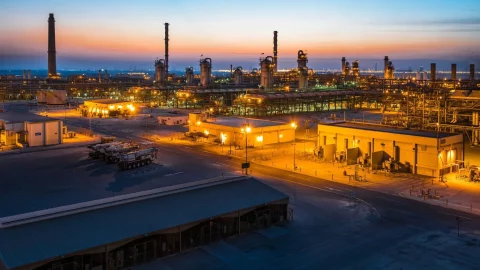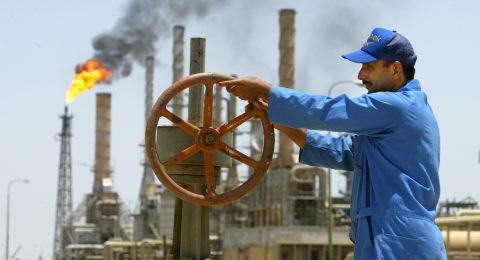Just as many other industries around the world, the oil and gas industry, has recently passed through several crises, including the consequences of COVID – 19 pandemic, prices fluctuation, and the impact of the Russian–Ukrainian war. Many of these industries resorted to advanced technologies to respond to or mitigate the effects of such crises. The convergence of Information technology and operation technology (IT/OT) has become one of the growing trends in the oil and gas sector in this regard as it can enable businesses to close the gap between traditional systems that support the OT and modern IT layers.
IT/OT Convergence in Oil & Gas: How it Works
IT/OT convergence is a tool for oil and gas operators to benefit from the huge amount of data generated when connecting internet of things (IoT) devices to the operations equipment. This data can build valuable insights across the various phases of operation and production. This data has appeared in the form of time series and analyzed by using artificial intelligence (AI) and machine learning (ML) techniques to predict any possible damage or technical issues, according to an article published on Birlasoft.
Bringing IT and OT systems together can be achieved through three stages. First, the OT layer which consists of supervisory control and data acquisition (SCADA) systems and sensors installed in the facilities should be linked to the right network technology to transmit data to IT systems. Then, this data is collected by advanced platforms and saved in data silos to be ready for use in various cases. After that, via AI and ML applications, this data can provide a predictive analysis, which is useful in automated operations and control systems. It will also be beneficial in increasing production, reducing incidents, and providing accurate production plans.
IT/OT Convergence Applications in Oil &Gas
An article published by TechTarget indicates that IT/OT convergence applications in the oil and gas industry such as predictive maintenance through the internet of things (IoT) sensors enable workers to predict any leaks or failures in oil and gas pipelines before they break down. The article also referred to the acoustic sensors which can analyze oil flow in the pipelines. Additionally, remote asset management technologies are applications for such convergence as well. It has an important role in helping employees control operations remotely. This role was essential during COVID – 19 time. One of the most recent applications for IT/OT convergence is the digital twin which implements simulation for the various assets virtually.
IT/OT Convergence Equips Oil & Gas Industry
IT/OT convergence techniques move the petroleum sector forward. By providing predictive analysis through IT/OT convergence techniques, costs will be decreased due to reduction in maintenance spending. It also helps in keeping production levels, as workers can predict any problem before it happens. In addition, remote and automated control can save workers time as well as traveling costs as they can handle operations from their offices without any need to go to the fields.
Moreover, IT/OT convergence also provides a safe workplace. According to Birlasoft, “wearable safety devices can be integrated into a centralized communication system and configured for triggering alarms when a hazard is detected nearby or when unsafe situations like falling objects or hazardous chemicals are detected at a location.”
However, IT/OT convergence is not free of obstacles. For example, this technique may face cybersecurity threats from hackers. This issue needs oil and gas companies to have strict cybersecurity controls and implement zero-trust security paradigms. Furthermore, implementing IT/OT convergence requires the companies to have equipment and devices that can integrate with the new systems. When oil and gas companies identify these challenges and deal with them, they will gain uncountable benefits from this innovative technique. It also will support the sector’s digitalization by raising its efficiency with the lowest costs.








